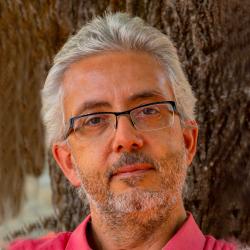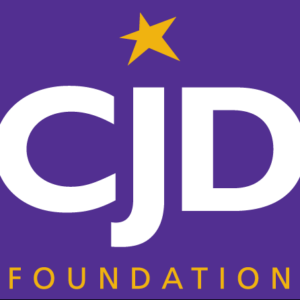The Bryant Welch Memorial Research Grant
Contributed by: Keith Welch and Dianne Fox-Welch
This grant was established in 2011.

The development of therapies for any disease requires previous assessment of the safety and efficacy of such potential treatment in animals. To assess the potential effectiveness of the treatment it is important to have animal models that faithfully reproduce the disease observed in humans. The chance of a potential therapy failing in human trials depends, in many cases, on how similar both are.
For that reason, through this project we intend to develop and characterize a new animal model that is directly susceptible to human prions, particularly to prions causing Gerstmann-Sträussler-Scheinker disease. Apart from allowing us to test the effect of therapies on human prions before facing clinical trials, this new model could offer other important advantages. According to our preliminary results, this might be the fastest animal model developed for a human prion disease, accelerating the trial of potential treatments and therefore reducing the cost of treatment development. Additionally, biomarkers indicating disease progression, molecules that preclude the onset of the neurological symptoms, have been detected in the blood of this model. All these characteristics would make this animal model ideal to rapidly test potential therapies for prion diseases, although the model requires further characterization to make it feasible.
Throughout this project, we will evaluate whether other human prion strains could be even faster, and we will test different inoculation routes in order to make it usable for treatments targeting prion transport to the brain. We will fully characterize the lesions appearing in the brains of these animals to evaluate disease-modifying therapies, and we will demonstrate their utility assessing the efficacy of two potential treatments, one aimed to reduce PrPC levels and another one, using a small molecule with anti-prion activity in vitro.
Joaquín Castilla, PhD
Center for Cooperative Research in Biosciences (CIC bioGUNE), Basque Research and Technology Alliance (BRTA), Derio, Spain
IKERBASQUE, Basque Foundation for Science, Bilbao, Spain
Joaquín Castilla joined CIC bioGUNE (https://www.cicbiogune.es/people/jcastilla) as a senior investigator in 2009, awarded an IKERBasque Research Professor position and has been since then the Principal Investigator of the Prion Research Laboratory at said institution. He has a long-lasting experience on prions, starting his work on them in 1998 at the National Center for Animal Health (CISA-INIA) in Madrid.
In 2003, he moved to Switzerland to work as Research Scientist at Serono Research Institute on the same topic and shortly after, he became Assistant Professor, first at the University of Texas, Medical Branch (2003-2006) and later at Scripps-Florida (2006-2009) leading an independent group. His main field of expertise is the in vitro and in vivo propagation of prions. More specifically, his group focuses on studying the spontaneous misfolding of prions and the strain and species barrier phenomena in cell-free systems, trying to dissect the molecular mechanisms by which prions form and propagate, with the ultimate aim of developing new diagnostic methods and anti-prion therapeutic approaches.
In order to get said achievements, Dr. Castilla has extensive experience participating in European Community, NIH (USA), and national projects. His group has over 20 active collaborations both in Europe and outside the European Union with the most prestigious groups in the prion field. He is a member of the Journals Veterinary Research, Pathogens, and Biomolecules editorial boards and acts as a reviewer for dozens of international journals as The EMBO J., Neuron, Nature, among others. He received the Award of Young Scientific in Virology (Spanish Society of Virology) in 2011 and the Research Award of the Colegio de Médicos de Álava in 2018. He is also a member of the Advisory Board of CIMA, a research institution from the University of Navarra, and is highly involved in the Spanish Foundation for Prion diseases (https://fundacionprionicas.org/), currently acting as President. Dr. Castilla has published 115 peer-reviewed articles, many of them instrumental for understanding the molecular mechanisms of prion propagation.
Contributed by: Keith Welch and Dianne Fox-Welch
This grant was established in 2011.
Contributed by: Jeff Moxie
This grant was established in 2011.
Contributed by: Karla Piriz and Lauren Piriz
This grant was established in 2015.

Contributed by: Veronica Oberdorf
This grant was established in 2008.
Contributed by: Thomas Lord Charitable Trust.
Established in 2021.
Contributed by: Kathy Baxley and Family
Established in 2018.

This website was made possible by a generous donation from Cookie Stivison, in memory of her husband Tom Stivison, and a grant from the Centers for Disease Control and Prevention.